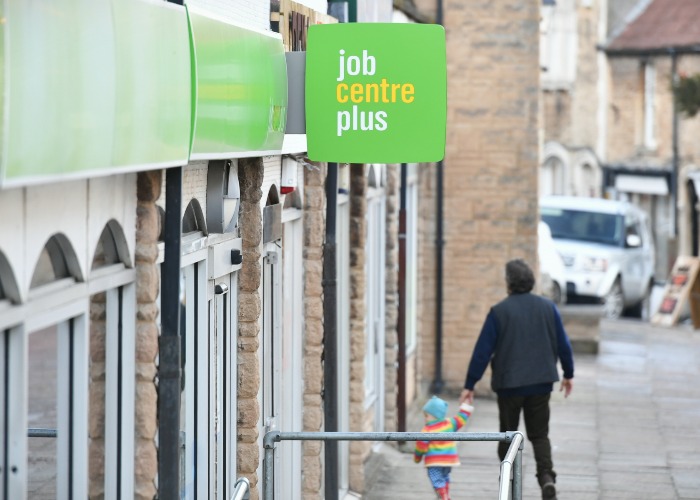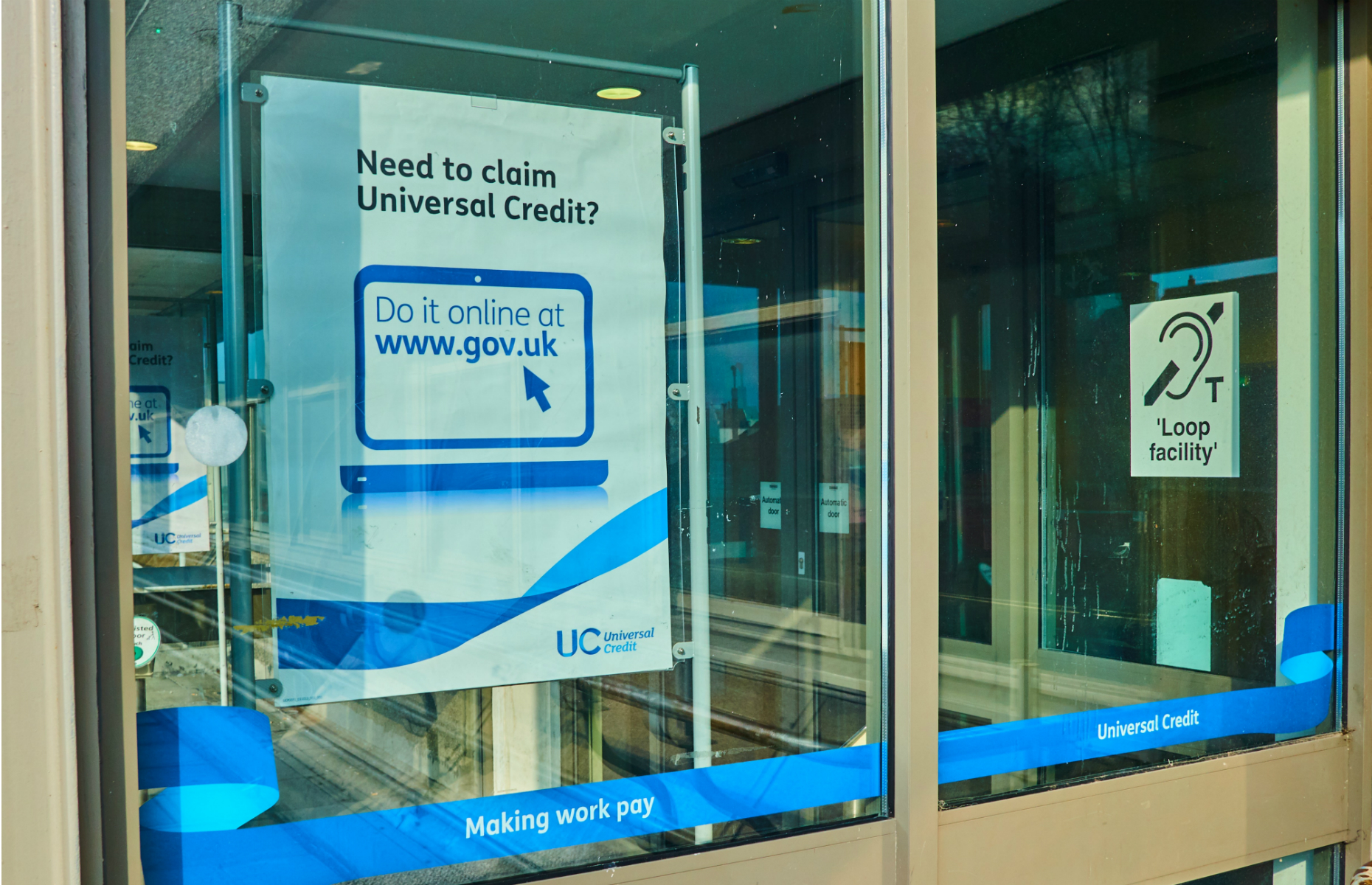I tried to claim Universal Credit: here's why I don't think it's fit for purpose

Confusing questions, career fairs and extreme payment delays. A job-seeking graduate writes about her past experience claiming Universal Credit.
It’s no secret Universal Credit has attracted lots of criticism recently.
There have been numerous reports of computer system and management failures, delays of up to 12 weeks for first payments forcing bereft claimants to turn to food banks in order to survive.
A staff member who had previously worked at the Grimsby Service Centre described the system as fundamentally flawed.
They told The Guardian the system was unclear for users and that caseworkers often gave out inconsistent advice, but when claimants made inevitable mistakes, payments were delayed and problems took weeks to amend.

In the words of the whistleblower, Universal Credit is “punishing claimants for not understanding a system that was not built with them in mind”.
Read about the major benefit, tax and pension changes for 2018/19.
An independent watchdog said the scheme, which was introduced to encourage the unemployed into work and save the Government money, will end up costing the country more money than the benefits system it replaced both in terms of it being a costly project and also the knock-on effect it’s having on other areas of the welfare system.
How it works
Universal Credit – which was first planned to be completed by 2017 but now estimated to not be finished until 2023, six years late – was introduced to simplify the benefits system.
It compiles a range of existing benefits into one system and one payment.
This includes Jobseeker's Allowance for the unemployed, Employment and Support Allowance for those too ill to work, a Housing Benefit for tenants on low incomes, Child Tax Credit for families in and out of work, Working Tax Credit for people on low wages, and Income Support for others such as lone parents and people with disabilities on very low incomes.

So instead of people claiming multiple benefits individually, which risk miscalculations and overpayments – which then have to be paid back at the end of the year, users enrol with a single online system, where individual’s information can be updated in real time.
The design is supposed to reflect the ever-changing work and family situations that people have in today's fast-changing world and provide a single personalised benefit.
Claimants also have one-to-one meetings with a work coach to discuss their situation.
After the initial assessment, there is a waiting period of five weeks for the first payment to come through. It is then paid monthly in the UK and twice a month in Scotland, to mirror the experience of being on wages in a job.
My experience
After I left university and before I started getting paid work as a writer, there were 12 months of my life where I was going between unpaid internships and whole weeks spent writing cover letters.
This was quite a deep low, yet an experience I’m sure is all too familiar with my generation (those who border millennial and Generation Z).
If you're worried about post-university finances read our top tips for recent graduates.
When a family friend suggested I apply for Job Seeker's Allowance, as someone who comes from a reasonably well-off background, I hadn’t ever considered there would be a time in my life I would be eligible to claim benefits.
But, after a bit of research, I realised I could be supplementing my income to the tune of £250 a month while having to change little else.

Following a lengthy online form and an almost immediate torrent of voicemails, email notifications and text messages – I guess to increase the chance of those with low access to technology turning up – I had my first appointment at the jobcentre.
It was around this time I started to regret my Universal Credit application and considered giving up.
Over the next two months I was made to attend fortnightly appointments, track my job search online, change my CV to a format which went against my own judgement, and spend a morning attending a careers fair for jobs I had absolutely no interest in applying for.
My problem was, I was searching for a creative job as a writer, where quality over quantity is valued in applications and unpaid work experience key.
I also had a part-time job in retail, so finding the time for arbitrary job applications and careers events seemed inconvenient and misdirected to me.

To increase my frustration, two or three months and not a single payment later, I called up the universal credit hotline to enquire about the delays.
After waiting in a 20-minute phone queue my operator looked into the problem and very quickly discovered the glitch. Something on my profile hadn’t been verified, but they told me it was now fixed and I would be paid in a few days.
The following month, the same thing happened again.
Five months on and only £500 received, I was ready to pack it in.
I phoned Universal Credit again and requested they let me quit. To my surprise the man on the other end tried to persuade me against this – if I changed my mind I’d have to go through the whole process again – but relieved to finally be free, I assured him I was serious about quitting.
A system completely out of touch with its user
Apart from realising I was not an appropriate recipient of the benefit, some of the problems I had can only be put down to unsuitability.
Apart from not receiving a payment for 12 weeks – without the help of my parents I would be one of the people risking being turfed from their home by their landlord or queuing outside food banks, was how difficult it was to report on my financial and employment situation accurately.
Some of the jargon and questions on the initial assessment form were difficult to understand and answer.
So I found it a struggle – someone born and educated in the UK, how might someone whose first language is not English feel trying to answer?
Also, having to notify someone every single time I had a change in employment including the number of hours I’d be working, pay per hour, contract length and employer details was tricky.

When you are out of full-time employment, doing bits here and there like I was with internships, you are not always given a contract and often don’t quite know how long you will be working for or when you will be paid.
Between meeting my adviser one week to the next a million things could change that I needed to have logged online and reported to them.
Unless you are in a full-time permanent job, this is just too stressful and complicated to get right.
Quite simply, I found a system designed to be ‘personalised’ was actually far too demanding and intrusive on the applicant. I can see how easily someone can make mistakes in reporting their background and consequently have payments withheld.
As others have written, I think issues that have been blamed on IT, really lie with the fact Universal Credit is completely out of touch with its users.
When it was built it failed to consider the lives of those it was being made to help.
Which for such an expensive project, implicating so many people’s livelihoods, is pretty unforgivable.

Unless you’re livelihood absolutely relies on it, which in itself is potentially a good buffer against inappropriate people using it, but also should be an entirely unnecessary hurdle to receiving Government help, Universal Credit is much more trouble than it’s worth.
Government assistance for those who are unemployed or in need of social welfare support needs to be more compassionate and less bureaucratic.
In its current form, I don't think it's fit for purpose and is likely to demoralise recipients in need of community support.
After writing this article I contacted the Department of Work and Pensions to see if they would like to comment, however, I have not yet received a response.
Comments
Be the first to comment
Do you want to comment on this article? You need to be signed in for this feature